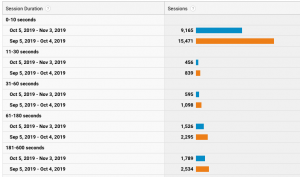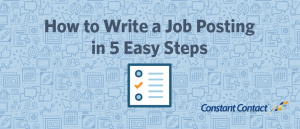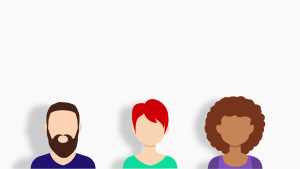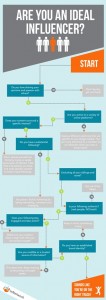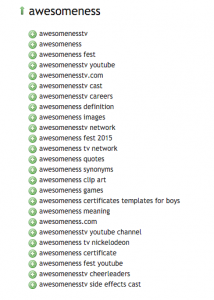
Millennials. They’re our youngest generation of employees and a colossal consumer base that dwarfs the size of their predecessors, Gen X. So it’s natural that cultural analysts and trend prognosticators have been trying for years to size up Millennials and make sense of what they want and where they plan to take us when they rule the world.
But peeking right behind those Millennials is a tribe that’s even bigger and more mysterious: Generation Z. Defined as those born between 1996 and 2010, Generation Z outsizes the 60 million Millennial clan by a cool one million, making this toddler-to-teen army (born between 1996 and 2010) the next wave of employees that companies must understand in order to harness their talents and attract their interest.
I find it fascinating to examine not only generational behaviors, but the drivers behind these behaviors. Millennials grew up amidst the relative peace and prosperity of the 90s only to have their expectations shattered by the 9/11 attacks and financial crashes of 2000 and 2008. When you consider how much the Great Depression of the 20s and 30s informed the mindset and habits of our forebears, it’s easy to see how the Great Recession etched itself into the character of those coming of age during this bewildering time. As Alex Williams observed for The New York Times, “Theirs is a story of innocence lost.”
Generation Z never had the luxury of a threat-free perspective so they’ve been forced to view life through a more guarded lens from the start. One generational expert, Neil Howe, even suggests that they be called the “Homeland Generation” and defined by a post-9/11 birth date beginning in 2004. The wary worldview of this group is further shaped by Generation X parents, who came of age in the post-Watergate and Vietnam years amidst a time of economic and global uncertainty and who are now obsessed with creating a safer world for their kids.
In many ways, Gen Z shares similarities with Millennials but there are key distinctions as well:
- Technology. Gen Z has never known a world without smartphones and social media, so it’s even more ingrained for them than Millennials. They gobble up information quickly and are ready to move on to the next thing in an eyeblink. When it comes to Gen Z, seconds count. As Dan Schwabel, managing partner of Millennial Branding told Williams in The New York Times piece, “we tell our advertising partners that if they don’t communicate in five words and a big picture, they will not reach this generation.”
- Privacy. Unlike the more showy Millennials, Gen Z is less interested in sharing their lives for the public record. Anonymous social media platforms like Secret and Snapchat are more appealing to Gen Z than Facebook and similar platforms that leave permanent records which can come back to haunt users later on.
- Cultural diversity. With skyrocketing growth in biracial and minority populations, Generation Z embraces multiculturalism as a touchstone of who they are, and this also informs their attitudes on social issues. They’ve come of age when same-sex marriage and a black president are a given and they expect continued social progress to reflect the ethnic diversity that is tightly woven throughout their lives.
- Pragmatism. Growing up in an uncertain world, and being raised by Gen X parents whose own prospects seemed stunted by less exuberant times, Gen Z is drawn to safety. Like the Silent Generation who grew up amidst war and the Depression, Gen Z is a more cautious class that steers away from risky behaviors and towards more sensible careers and choices. Stats on lower underage drinking and higher seatbelt wearing for this group are just a couple of data points for this characteristic, as well as anecdotal evidence of job paths that are forged less by passion and more by practical realities.
What does this all mean? The future of work lies with Generation Z and employers need to get ahead of the shift that this group will represent. According to Dan Keldsen, author of The Gen Z Effect, there are six main forces from Gen Z shaping the future of business. As reported by Jacob Morgan for Inc., this includes taking the good characteristics of each generation and bringing them together for a cohesive team environment; teaching employees how to learn by harnessing the vast amount of information available today to adopt the world as a classroom; changing the rules and breaking tradition to achieve great results; and disentangling ourselves from hyperconnectivity so that we are not always online.
As Gen Z grows up and matures, the characteristics which are now faintly in view will come into sharper focus, helping companies frame themselves to attract this new generation as employees and consumers. For now, businesses would be well advised to double down on building cultures of giving back which help employees feel a sense of purpose with their work. Corporate volunteering and giving programs are an essential part of involving employees in the social responsibility of their employers, so if you don’t already have a formal program here’s another reason to get one going.
Connecting their jobs to social impact will remain a priority for Generation Z as it has been for Millennials, and employee volunteer and giving programs will continue to be creative tools for strengthening teams, skills and leadership. There’s every indication that technology-centric Gen Z will be more attracted to volunteer and giving if the experience is social, mobile and interactive, such as the experience that Causecast offers through its platform. Companies should walk the talk of employee-led service by investing in tools that integrate giving back into the regular work life of employees.
Gen Z isn’t the only generational change we need to anticipate in our work lives, but they represent a critical part of our collective futures. The more we can prepare for their arrival into the workforce, the better we’ll be at harnessing their potential for the success of our businesses and communities.
Digital & Social Articles on Business 2 Community(117)


